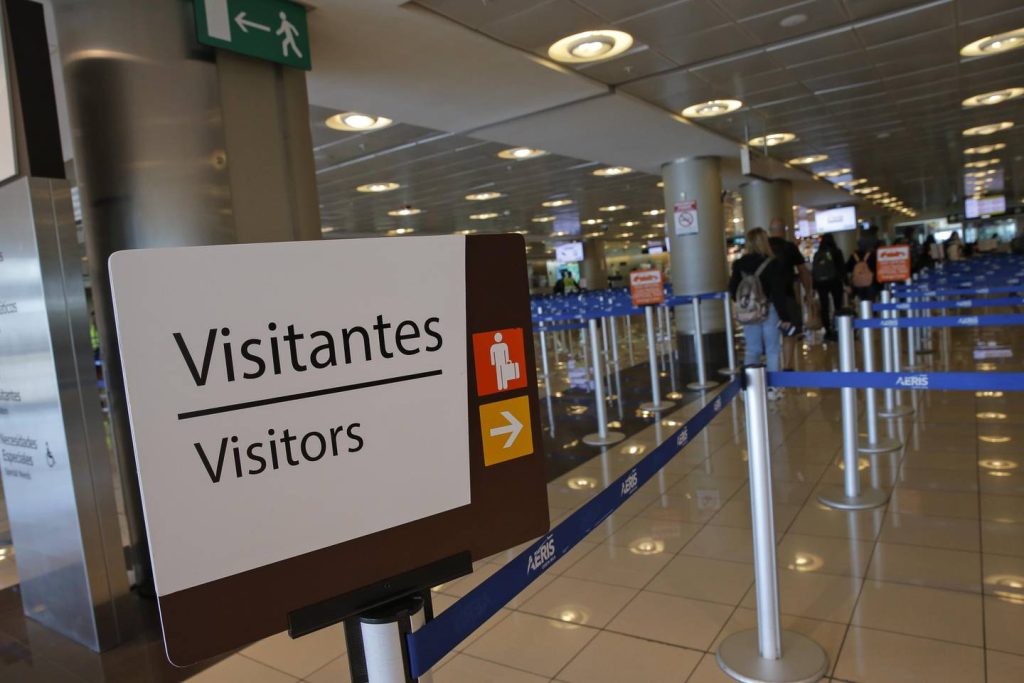The Directorate General of Immigration and Immigration (DGME) has released new guidelines that will make entry of non-resident aliens of some nationalities into Costa Rica more flexible, effective Tuesday, August 16. It will apply primarily to Nicaraguan and Colombian nationals entering as tourists or on a transit visa, as well as refugees residing in the United States and Canada.
By directive DG-0018-07-2022-DG-UV, DGME It will go down from six to three months Validity of passports for Nicaraguans and Colombians at the time of entering the country. For example, with the previous guideline, if the validity of a person’s passport was less than six months at the time of visa processing, the procedure was redone. This term is now being cut in half.
With this drop, these citizens are on par with the second group of 37 countries with immigration-regulated entry, who are required to have a passport with a minimum validity of three months.
This group includes Guatemala, Honduras, Turkey, Micronesia, Solomon Islands, Suriname, Dominica, and Granada, among others, except that they do not require a visa to enter Costa Rica and have a maximum period of 30 days.
Immigration guidelines issued on Saturday maintain the 90-day validity period for visas granted to nationals of Nicaragua and Colombia.
Nicaraguans, moreover, DGME You will be allowed to apply for two consular visas in your country of originAs long as they justify the necessity of entering Costa Rica twice. This feature will be allowed, for example, when they have to leave the territory of Costa Rica for another destination and must return the same way.
For Venezuelans, the circular states that those in their country must apply for a visa to be consulted through the Costa Rican Consulate in Colombia, since the country does not have a consular representation in Venezuela, submitting the corresponding requirements.
Meanwhile, it reserves the option that Venezuelans outside their country can manage visa consulted in third countries and family reunification, from Costa Rica, in accordance with current immigration legislation.
Another flexibility that allows nationals of the group of countries with a consular or restricted visa Residence as refugees in the United States and Canada, to be able to enter Costa Rica without a visa. Asylum in that country must have a validity period of at least three months. This exception was only for those who had a visa or other type of legal residence in those North American countries.
In the case of Cuban refugees in the United States, for example, the DGME required a consultative visa to enter the national territory from the beginning of 2022. Previously, they did not ask for this requirement, although a rule has been required since 2016.
On the other hand, refugees or stateless persons from the mass of countries that require a consular visa and residing in a third country, They will be able to apply for that visa at any Costa Rican consulate abroad, but without prior consultation. Citizens with this condition from Albania, Angola, Saudi Arabia, Georgia, Indonesia or Yemen are eligible here. This group consists of 72 countries.
Finally, citizens or stateless persons with a restricted visa from 15 countries, and residents of third countries, Keep them consult the visa department. Here are citizens under these circumstances North Korea, Myanmar, Palestine, Syria, Afghanistan, Iran and Iraq, to name a few.
The country will also allow refugees, for their entry, in a safe conduct recognized by the United Nations (UN), known as pass.
Despite the changes, the DGME clarified that “a visa is an expectation of entry into the country and the foreign person must undergo the corresponding immigration control with a professional immigration police officer, who will authorize (or refuse) their entry, as well as the number of working days in the granted country.”








More Stories
Nicaragua picks up and delivers to El Salvador four subjects circulated by Interpol
UN experts have warned of serious human rights violations in the context of the presidential elections scheduled for July 28 in Venezuela.
The Organization of American States deploys observers for the US elections